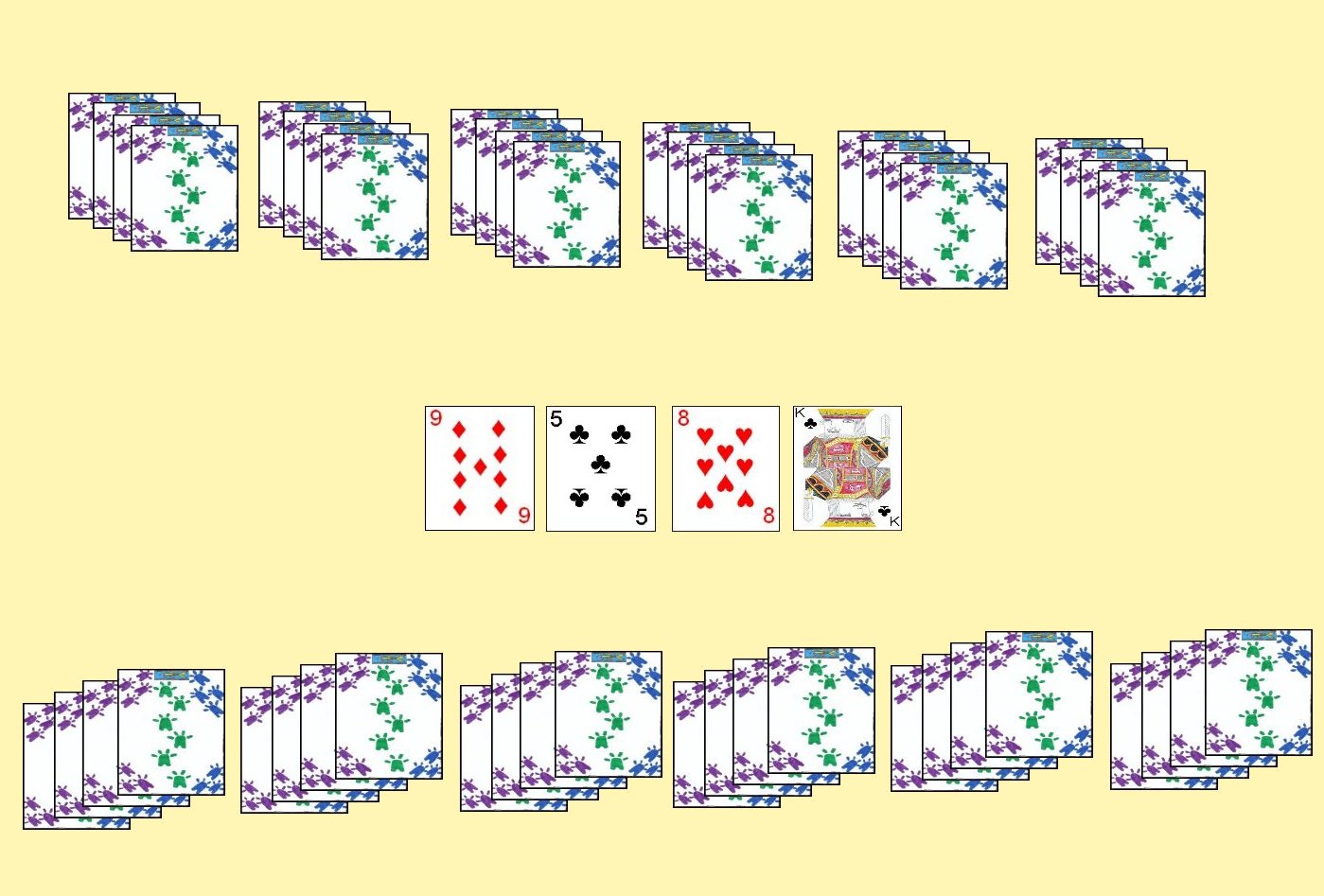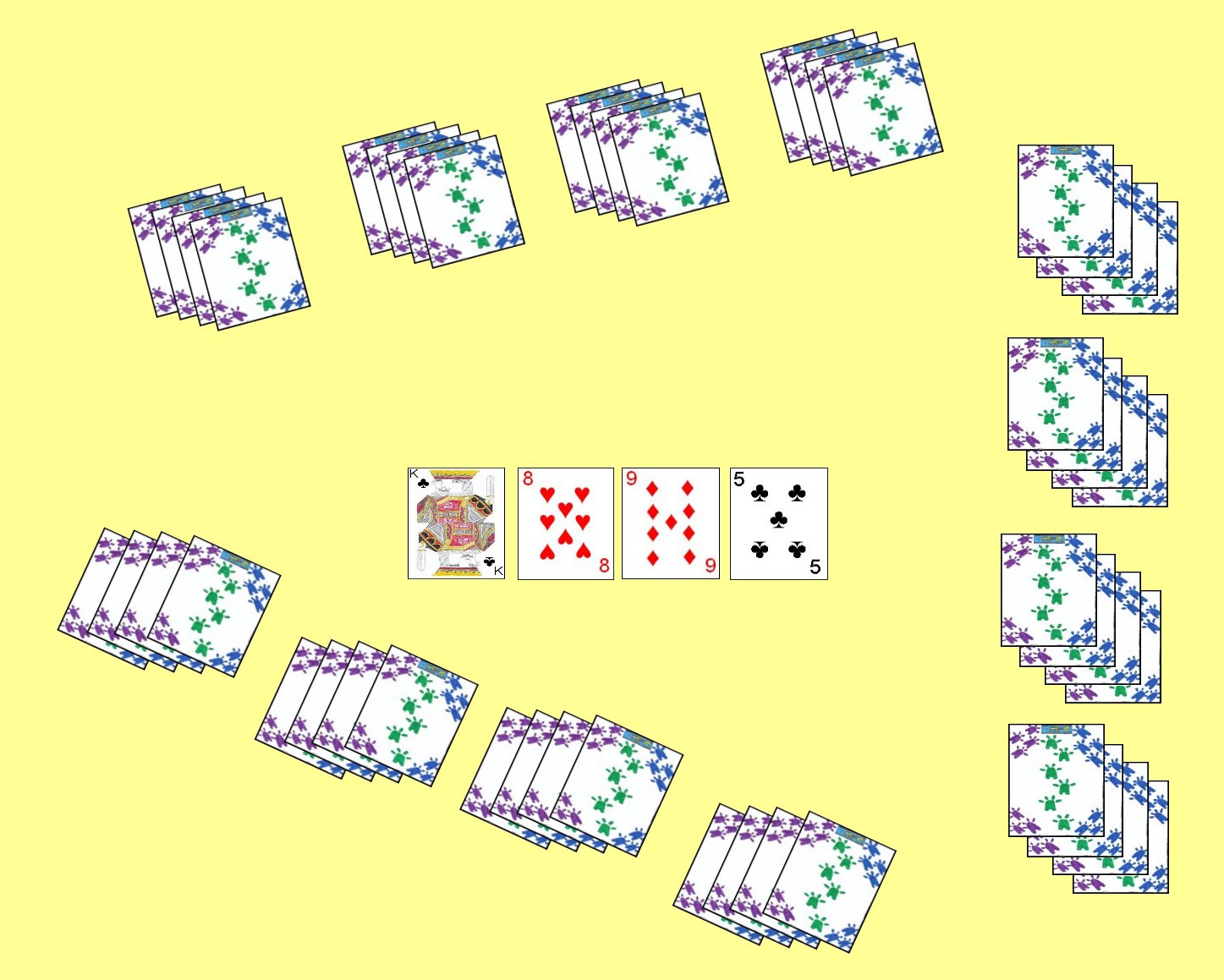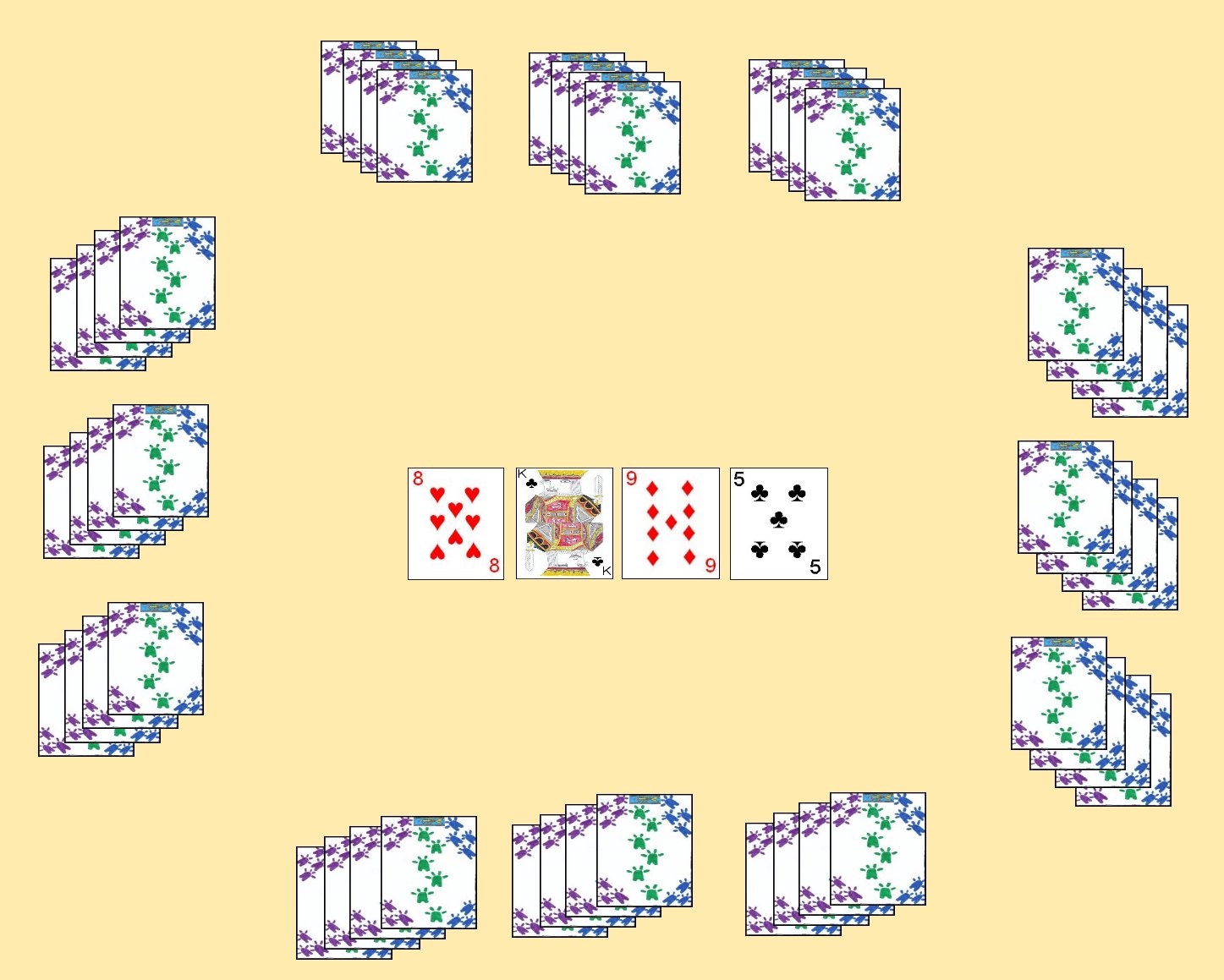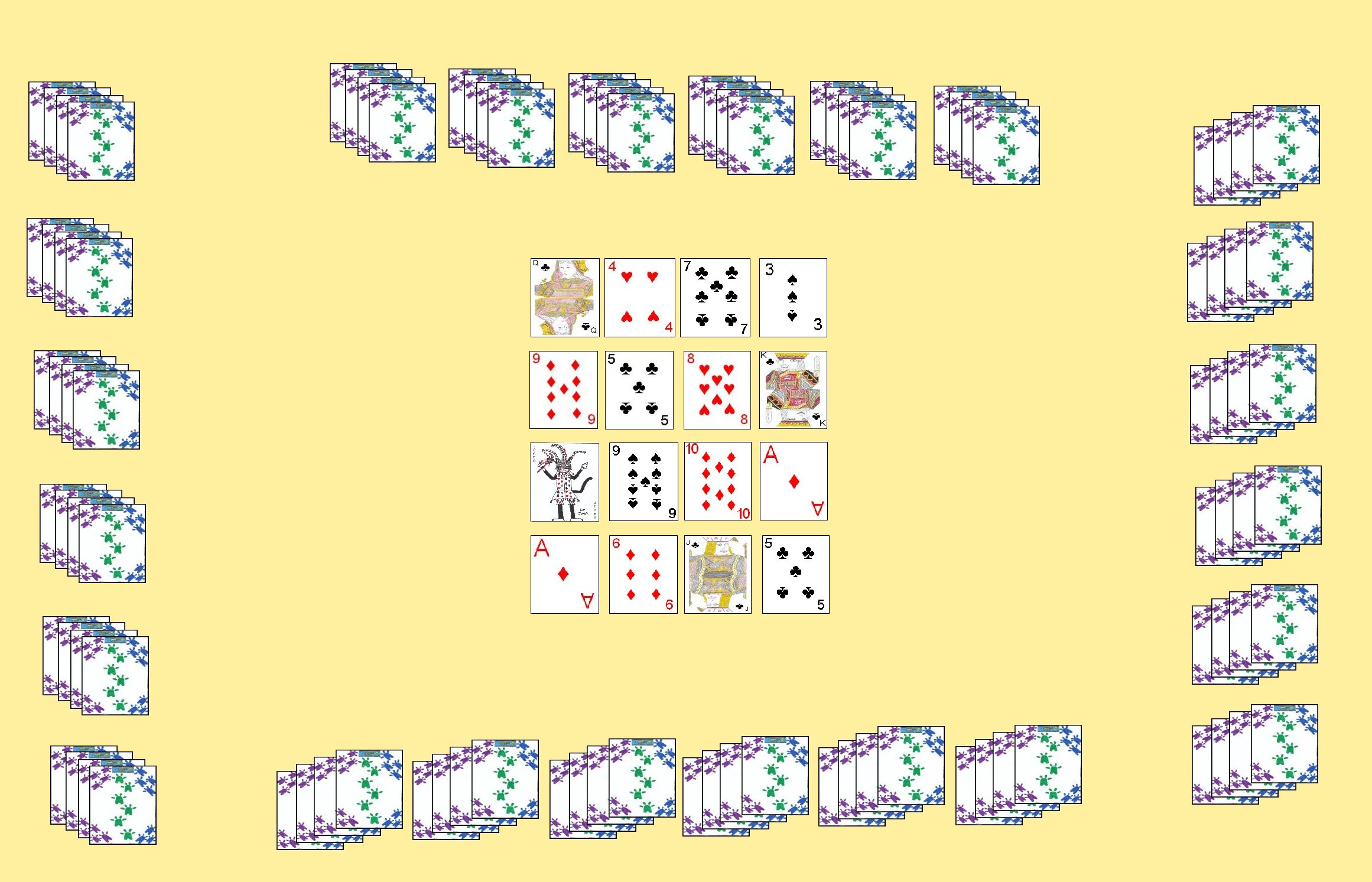The game uses one standard 52 card deck. The number of cards dealt to each player during a hand will be directly dependent on the number of players in the game.
The selection of seating positions and first dealer can be done in a number of ways, with drawing from a shuffled deck a common method.

|
| Two player example layout for the card game Lemon |

|
| Three player example layout for the card game Lemon |

|
| Four player example layout for the card game Lemon |
| Players | Total Cards to Each Player | Four Card Packets Per Player |
|---|---|---|
| 2 | 24 | 6 |
| 3 | 16 | 4 |
| 4 | 12 | 3 |
Each packet dealt to the player is a separate hand and should be kept in a separate face down pile from his other such packets. After each player has the requisite four card packets dealt, the dealer then places the last four cards in the deck in a row, face up in the center of the table.
No player should pick up any of the cards dealt to him until the start of play. As soon as the dealer finishes the deal, he announces "Start" and play begins. A player initially picks up his choice of one of the four card packets initially dealt to him and may only be playing from one such hand at a time. He may, at any time, put one of his four card hands down in front of him and switch to another of his own hands for play.
There are no actual turns in this game, with all players playing simultaneously. A play consists of laying up to four cards from his currently held hand face up on the table and then immediately taking an equal number of cards from the center of the table as replacements. A players should always have four cards in his hand and the center of the table should always contain four face-up cards except for the brief moment in which a player has placed one or more cards on the table and is about to take other cards as replacements. Each of the players four card packets is a separate hand, so he may only have one held in his hand at a time from which he may exchange cards with the center. He may, at any time place the current hand down and pick up another of his own hands to play from it.
As soon as a player manages to form any of his individual hands into four cards of the exact same rank, he places that pile back in front of himself, this time face up to indicate that hand is complete. This frantic card exchange continues until one player has managed to form all his four card packets into groups of four cards of the same rank. Immediately upon performing this feat, he shouts "Lemon" and is designated as the winner of the hand. The winner of each hand is set as the dealer for the next hand.
